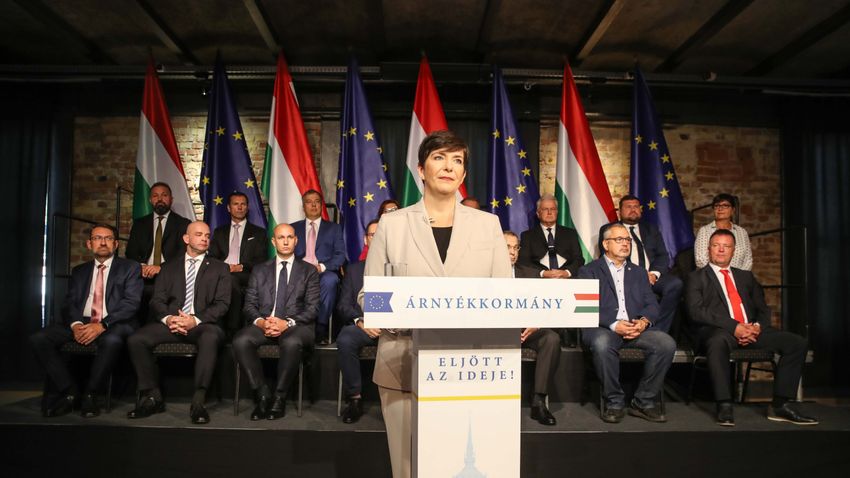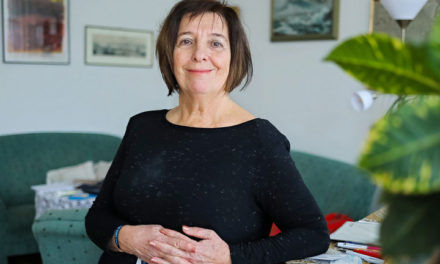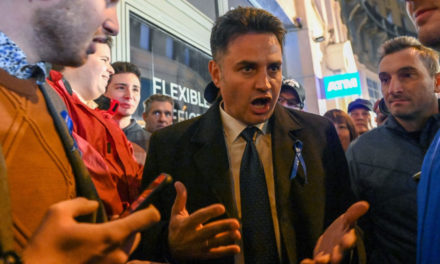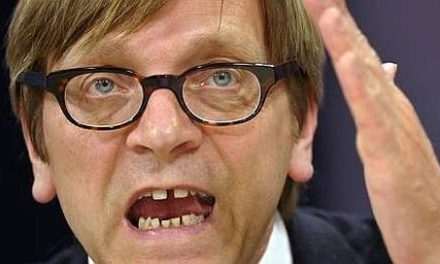As we know, Klára Dobrev - that is, Ferenc Gyurcsány, her husband - formed a so-called shadow government in September. As a first reaction to this, we could only jokingly say: it's okay. However, there are some issues here that are worth looking into.
Dobrev said that they took the English example as a basis when they founded their shadow government. This in itself is a joke: because the English opposition can form a shadow government, be it Labor or Conservative, because both parties have a real chance of winning power in the next elections, within the framework of the specific Anglo-Saxon two-party system - which is based on the majority election system - come to power. This is because they have been fighting a relatively balanced political struggle with each other for decades, and as a result, voters can take seriously the possibility that there will be a change of government in the next election, so they should know well in advance what the party that is still in opposition would do if it were to come to power.
On the other hand, in Hungary there are no such balanced political power relations between the government and the opposition. On the contrary: in the fourth (!) parliamentary election, Fidesz-KDNP won a two-thirds majority again, and even has a commanding lead in public opinion polls not only now, but for 16 years already! In this situation, we cannot talk about similarities with Anglo-Saxon relations, in the language of political science, our country has a so-called predominant party system, which means that, in essence, only one force capable of governing has been operating in Hungary for 12 years now. Therefore, pretending that even a single left-wing party has a realistic chance of taking power from the national government here and now is a preposterous and ridiculous idea. But why are we surprised: since 2004, we have been convinced of the fraudulent and ridiculous politics of Klára Dobrev and Ferenc Gyurcsány...
In other words, the first problem with the shadow government is that it is nothing more than an eyesore. It has nothing to do with the English or Australian model. This is a bitterly and forced formation, and it serves the purpose of the Democratic Coalition showing its strength on the left and taking over the initiative role again, to which all other opposition parties must adapt.
The second problem is that in the Anglo-Saxon model real and authoritative professionals or semi-politicians and professionals occupy the shadow government. So the keyword is political authority based on expertise.
But do the people who are the shadow ministers of the shadow government, who were "appointed" by the Dobrev-Gyurcsány couple, really have any professional or political authority? It's hard to accept this even as a joke.
It is therefore worth dealing with names and persons in the following. First of all, here is the most important person, none other than the prime minister of the shadow government, Klára Dobrev. What does or would give him authority?
We know about him that his grandfather, Antal Apró, played a decisive role alongside János Kádár and Béla Biszku in the suppression of the 56th Revolution and War of Independence and in ordering retaliatory measures. Of course, it can be mentioned here that grandchildren are not responsible for their grandfather's sins. OK, but Dobrev's "self-respecting" career isn't exactly hall of fame either. He is the one who, in connection with the police brutalities of 2006, never accused the police with a single word, and considered the actions of the police against the peaceful demonstrators to be right and fair, evoking African dictatorships. The other important moment is that he constantly speaks to the leaders of the union against Hungary receiving the sums due to us from the recovery fund, and anyway, as an EP representative, he does everything to ensure that the rule of law procedures against our country continue, and at the end of this, even the right to vote will also be taken away from us, and we should not even receive any support.
So he would be the shadow prime minister. In such cases, they used to say: if the boss is like this, then what are the subordinates like? And this saying in this case is quite accurate and clear.
Let's look at the list of shadow ministers: Chancellor Csaba Molnár, Minister responsible for government programs Gergely Arató, Minister of the Interior Géza Mustó, Foreign Minister Sándor Rónai, Minister of Finance Zoltán Bodnár, Minister of Economy Dávid Ferenc, Minister of Wage and Labor László Kordás, Minister of Social Affairs and Pensions Erzsébet Gy. Németh, Komáromi Minister of Health Zoltán, Minister of Education Balázs Barkóczi, Minister of Energy and Utilities László Varju, Minister of Environment and Climate Protection Lajos Oláh, Minister of National Defense Ágnes Vadai, Minister of Agriculture Benedek Szilveszter, Minister of Local Government Sándor Szaniszló.
I think the names speak for themselves: it is difficult to imagine a left-liberal, rainbow opposition that is more clearly politically biased than this, using professionalism at best - and here it is worth quoting István Csurka - as an old Bolshevist trick.
There is no way to go through each name, but it is worth mentioning one or two examples. It is not worth mentioning Csaba Molnár in more detail, because he is the one who is considered to be Ferenc Gyurcsány's briefcase carrier, and if someone accepts Gyurcsány's following without criticism, then simply put, he can do anything against Hungarian society and the national interest.
The person of Zoltán Komáromi, originally a family doctor, is pathetic because he was the one who made it clear during the biggest virus crisis that the Chinese vaccine is something that the government uses and abuses, which is completely unacceptable. What he said at the time may have had weight among citizens - not only left-wing ones - because he made them feel uneasy, and they could also have been senseless victims of this. A doctor cannot oppose the government's measures to protect people's interests on strictly political grounds, especially when lives are at stake. (Of course, the fact that Ursula von der Leyen decided on the fate of European citizens and the methods of procuring vaccines via text messages - well, neither Komáromi nor the DK pays attention to this anymore.)
We could even consider László Varju, who was placed in charge of energy and utility matters, as a key position, but unfortunately his personality is particularly irritating.
At the moment, he is facing two cases in court: on the one hand, because of his illegal behavior at the MTVA headquarters (he punched one of the security guards like a freestyle wrestler), but even more serious is the fact that he tried to bribe Imre Horváth before the 2018 elections socialist independent representative - who has since passed away - to give him his place, to step down, and for this the DK is willing to pay. I mention here that Gyurcsány was also behind this, who already told a local activist that the case of Imre Horváth must be solved with money. They succeeded, but now Varju is in court, and if he is found guilty of any of the charges, he would in principle manage his portfolio from prison.
Balázs Barkóczi was appointed to the position of shadow minister of education and culture "justifiably", since based on his past, he teaches the youth that controversial matters must be settled by force. In 2006, he was finally convicted of rioting against a woman. Never mind, he is also a suitable cultural model for Gyurcsány and Gyurcsány.
In 2014, he won 2.1 percent of the votes in the colors of the LMP. Sándor Szaniszló is known for the fact that he gave up his position as a member of the MSZP and moved to the DK, like so many others.
The big problem is that these are unqualified and incompetent politicians - not to mention the unqualified political activities of Gergely Arató, Ágnes Vadai and Erzsébet Gy. Németh. In other words, the Gyurcsány couple managed to put together a team without prestige or credibility. That is all they can do, and they are so unfit to come out of the shadows and create a real government.
The author is a political scientist and a research consultant at the Center for Fundamental Rights
Source: Hungarian Nation
Cover photo: Klára Dobrev introduces the members of the shadow government (Photo: Miklós Teknős/Hungarian Nation)












